
Fitness tips for men in their 30s

Men in their 30s can benefit especially from the following fitness advice.
Strength training should be prioritized because males lose muscular mass as they get older, making it even more important. To maintain and increase muscle mass, incorporate resistance exercises into your program, such as weightlifting, bodyweight exercises, or resistance band routines.
Cardiovascular Exercise
Maintaining cardiovascular fitness and general fitness require regular cardio workouts. To increase cardiovascular endurance, take part in exercises like running, cycling, swimming, or playing sports.
Include Flexibility and Mobility Training, It's critical to maintain flexibility and mobility as you age to avoid accidents and preserve range of motion. Stretching, yoga, or mobility drills can be incorporated into your routine to maintain flexibility and mobility.
Pay Attention to Recovery
As you age, recovery becomes more important. Make sure you get adequate sleep, give yourself enough time to recuperate between challenging workouts, and think about foam rolling and massage as recovery approaches.
Watch What You Eat, Nutrition is crucial for overall health and fitness. Concentrate on eating a diet that is well-balanced and contains a variety of fruits, vegetables, lean proteins, and healthy fats. Limit your intake of processed meals, sugary beverages, and alcohol in excess.
Keep Hydrated
Water consumption is crucial for supporting various biological processes and sustaining energy levels. Depending on how active you are, aim for at least eight glasses of water each day or more.
Keep an eye on your stress levels because they can affect your overall health and fitness level. To manage stress, partake in relaxing activities like yoga, meditation, or time spent in nature.
Set Realistic Goals, As you become older, your body could react to exercise differently than it did when you were younger. To avoid disappointment and maintain motivation, establish reasonable and doable exercise objectives.
Make fitness a lifestyle choice rather than a passing fancy. Consistency is key. Your physical and mental health will benefit over time from regular exercise and smart lifestyle choices.
Get Regular Checkups, It's important to keep an eye on your health as you approach your 30s. Make regular appointments with your healthcare professional to ensure that any potential health issues are caught early.
Adapt Exercises to Your Body's Needs
Pay attention to your body and modify your routines as necessary. Work with a qualified personal trainer or physical therapist to adapt routines to meet your body's needs if you have any current ailments or health issues.
Think about functional training, which emphasizes motions that mirror daily activities. Balance, stability, and general functional fitness can all be enhanced with this kind of training.
Keep in mind that maintaining your health over the long term requires finding activities you enjoy. Before beginning a new workout program, always speak with a medical professional or fitness specialist, especially if you have any underlying medical ailments or worries.
Change Up Your routines: By switching up your routines, you can prevent hitting a fitness plateau. It keeps things interesting to try various workouts or fitness programs, and it also challenges different muscle areas.
Include HIIT workouts
HIIT workouts involve quick bursts of intense activity followed by quick rest periods. This kind of exercise has the potential to effectively burn calories and enhance cardiovascular health.
Don't Forget About Core Exercises, Stability and overall strength depend on a strong core. To develop your core muscles, perform exercises like leg lifts, Russian twists, and planks.
Get Enough Sleep, Sleep is essential for healing and general health. To help your body heal and replenish, aim for 7-9 hours of good sleep each night.
Limit Sedentary Behavior
If you work at a desk all day or sit for lengthy periods of time, try to incorporate movement throughout your day. To offset the detrimental effects of extended sitting, take quick pauses to stretch or move around.
Warm Up and Cool Down, Spend a few minutes warming up before each workout to get your muscles and joints ready for activity. After exercising, cool down with some gentle stretches to lessen pain and avoid injuries.
Be Aware of Joint Health, As you become older, joint health becomes more crucial. If you have any joint-related difficulties, specifically, incorporate low-impact exercises like swimming or cycling to lessen the strain on your joints.
Maintain an Active Lifestyle Outside the Gym
Maintaining an active lifestyle outside the gym is just as important as scheduled training. Use the stairs instead of the elevator, travel nearby by foot or bicycle, or partake in leisure pursuits like gardening, hiking, or sports.
Avoid Excessive Alcohol and Smoking, These vices can hinder your efforts to achieve your fitness and health goals. Reduce or get rid of these behaviors to enhance general wellbeing.
Stay Socially Active, Participating in group fitness courses or participating in fitness activities with friends can boost motivation and make working out more fun. Social connection also benefits one's mental health.
Track Your Progress
Keep tabs on your fitness development to stay inspired and learn what your body responds to best. To track your progress over time, keep track of your exercises, strength gains, and changes in body measurements.
Maintain proper Hygiene, Maintain proper hygiene, particularly if you use a gym or other public exercise area. To stop the spread of germs, wipe down surfaces before and after use, wash your hands frequently, and adhere to suggested hygiene measures.
Be persistent and patient because being fit might take time, especially as you get older. Be kind to yourself and continue to put up the same amount of work. Long-term achievement is a result of consistency, persistence, and a positive outlook.
Fitness includes both mental and emotional wellness in addition to physical health. You may maintain a healthy and enjoyable lifestyle throughout your 30s and beyond by adopting a well-rounded approach to fitness that incorporates physical activity, wholesome eating, stress management, and adequate rest.
Use perfect Form
Utilizing perfect form is essential to avoiding injuries and maximizing the efficiency of your workouts, whether you're utilizing bodyweight exercises or lifting weights. Consider working with a personal trainer if you're unsure of your form.
Keep Yourself Clean in the Gym, If you exercise in a gym, keep yourself clean. Wipe away your perspiration with a fresh towel, avoid touching your face with dirty hands, and use hand sanitizer both before and after working out.
Establish a Routine, Create a regular exercise program that works for you. It's simpler to keep to your health objectives when you schedule exercise into your day or week.
Be Wary of Overtraining, Consistency is key, but too much of it can result in injury and burnout. Incorporate a variety of exercises into your schedule and give your body time to recover between strenuous sessions.
Maintain Motivation
Make your exercise journey entertaining by regularly establishing new challenges or objectives. Participating in a fitness challenge, taking up a new sport, or signing up for a race might give you the drive you need to stick with your fitness goals.
Be flexible with your schedule because there will inevitably be days when you cannot complete your scheduled workouts. Find other methods to be active even on hectic days by being flexible. Bodyweight exercises performed at home or brief, intense workouts are both viable solutions.
Keep an injury in mind
Be aware of your body's signals of pain and discomfort. Early resolution of minor difficulties can stop them from developing into bigger concerns.
Embrace Functional Movement, Concentrate on exercises that improve your capacity to carry out routine tasks efficiently. This strategy can raise your general standard of living and lower your risk of being hurt while performing daily duties.
Don't Compare Yourself to Others, Everyone's success in fitness is unique because it's a personal journey. Stay away from social media comparisons and comparisons to others at the gym. Pay attention to your own development and recognize your accomplishments.
Be Patient when You Reach a Plateau
It's normal to reach a point in your fitness journey where progress seems to have stopped. Don't lose hope; plateaus are common. Maintain your consistency and keep pushing yourself to overcome them.
A well-balanced diet should give you with the majority of the nutrients you require, but some men in their 30s may benefit from taking certain supplements. Before including any supplements in your regimen, speak with a medical expert.
Active pastimes
Look for pastimes that need you to move about. Playing sports, going on hikes, dancing, or practicing martial arts can all be pleasurable ways to stay active.
Develop a Positive Attitude, Your quest for fitness can be greatly impacted by positive thinking. Affirmations should be used in place of negative ideas as you see yourself reaching your fitness objectives.
Practice Mindful Eating by being mindful of your food intake. You may avoid overeating and choose healthier foods by practicing mindful eating. If you have a family, set a good example by leading a healthy lifestyle. Join your loved ones in physical activity and motivate them to develop wholesome habits of their own.
There is no one-size-fits-all strategy to fitness; it is a lifelong pursuit. To maintain a healthy and active lifestyle throughout your 30s and beyond, pay attention to your body, remain dedicated to your objectives, and make modifications as necessary. If you have any specific health queries or concerns about your exercise program, always seek the advice of a healthcare provider or fitness professional.
Include Balance and Stability Training
Balance and stability training is essential as you age to avoid falls and injuries. To increase your balance and stability, perform exercises with stability balls, balancing boards, and single-leg motions. Keep Moving During Rest Days, During rest days, keep moving by doing gentle exercises like yoga, stretching, or walking. These low-impact exercises help improve blood flow and hasten healing.
Monitor Your Heart Rate, Keep an eye on your heart rate when exercising, particularly if you're doing high-intensity activities. Buying a heart rate monitor will assist you in staying within the ideal training ranges and preventing overexertion.
Stay Informed: Keep abreast with the most recent developments in exercise methods, fashion, and health-related knowledge. You'll be better able to decide on your exercise regimen and general health if you are more informed.
Think About Functional Health Tests
Take into account functional health tests like body composition analysis, blood pressure, cholesterol levels, or metabolic rate assessments, depending on your health objectives and risk factors. These tests can reveal important information about your level of fitness and health.
Create a Community of Support, Surround yourself with people who have similar fitness aspirations. Whether you're participating in an online community or a fitness class, having support and accountability may be quite helpful.
Try Outdoor Workouts, Make the most of the outdoors by include outdoor exercises in your program. Hiking, trail running, and outdoor fitness courses are all great ways to mix up your routines and refresh your mind.
Focus on Posture, As we age, our habits of prolonged sitting and bad posture might become increasingly prevalent. Be mindful of your posture while performing daily tasks and include core-strengthening workouts to help posture.
Exercise With Caution, While intense workouts can be beneficial, they also carry a higher risk of overuse injuries, especially as you age. To give your body enough time to recover, alternate high-intensity workouts with low-intensity sessions.
Celebrate Non-Scale successes, While muscle gain or weight loss may be your main fitness objectives, you should also recognize non-scale successes like more energy, a better mood, better sleep, or improved sports performance.
Invest in Quality Workout clothing, To reduce the chance of injuries and improve your overall experience exercising, wear proper and comfortable workout clothing, including supportive shoes.
Take Note of Your Body
Pay close attention to any indications of pain or discomfort when exercising. Consult a doctor if you develop prolonged pain or other strange symptoms.
Establish a Budget for Fitness, Take into account setting aside money for costs associated with your fitness, such as gym dues, exercise classes, or personal training. Long-term savings can be had by making an investment in your health and wellbeing.
Breathing exercises can help you manage stress, sharpen your attention, and get the most out of your workouts. Use deep breathing exercises throughout the day or before and after workouts.
Stay Positive and Persistent, It's crucial to keep a positive outlook when pursuing your fitness goals. Accept setbacks as opportunities for growth and keep pursuing your objectives.
You may live a healthy, active lifestyle well into your 30s by according to these exercise advice. Remember that each person's journey to fitness is distinct, so customize these suggestions to meet your requirements, tastes, and fitness objectives. Put your health first so you can benefit from a balanced, happy existence.
Reduce Screen Time
Cut back on excessive screen time, especially at night. Long-term use of screens can reduce the quality of your sleep and mess with your circadian cycle.
Accept Outdoor Activities, Outdoor activities not only have health benefits for the body but also for the mind. Take a bike ride, engage in sport in the park, or have a picnic with loved ones.
While pushing yourself is important, create reasonable fitness challenges that are in line with your objectives and present fitness level. Reaching these milestones can inspire people and increase confidence.
Maintaining good cleanliness habits while using public fitness facilities or gyms is important. Use hand sanitizer, clean the equipment, and adhere to any health precautions the facility may have issued.
Include mind-body exercises
Exercises like Pilates, qigong, or tai chi can help with stress management, the mind-body connection, and general wellbeing.
Concentrate on Flexibility, Training in flexibility is essential for maintaining joint health and avoiding injuries. Incorporate both static and dynamic stretching exercises into your regimen.
Keep an eye on your alcohol intake, While moderate alcohol use is usually fine, excessive drinking might harm your general health and fitness.
Keep Up-to-Date on Supplements
If you decide to take supplements, do your homework and speak with a doctor to make sure they are secure and suitable for your requirements.
Diversify Your Protein Sources, To ensure you get a well-rounded intake of important nutrients, include a range of protein sources in your diet, such as lean meats, fish, poultry, plant-based proteins, and dairy products.
Practice Breathing Techniques While Exercising: By concentrating on your breath while exercising, you can increase oxygenation, lower stress levels, and perform better.
Address Muscle Imbalances
Continually evaluate the balance and strength of your muscles. By addressing any imbalances, you can lower your risk of injuries and improve performance.
Learn proper recovery techniques, and use them to improve muscle healing and avoid muscle tension. Recovery techniques include foam rolling, stretching, and active recovery days.
Limit processed foods
Processed and quick foods should be consumed in moderation as they frequently include high levels of harmful fats, sugar, and sodium.
Time Management, It can be difficult to balance work, family, and personal obligations. Manage your time wisely so that you may prioritize exercise without sacrificing other important facets of your life.
Recognize and celebrate all of your physical fitness accomplishments, no matter how modest. You may stay motivated and dedicated to your fitness quest by recognizing your progress.
Keep Your Workout Intensity in Mind
Keep your workout intensity in mind, particularly if you're starting back up after a break. A gradual increase in intensity will prevent your body from becoming overworked.
These advice is aimed to help you on your fitness path, but each person's situation and health requirements may be different. If you have specific health concerns or are beginning a new fitness regimen, always seek the advice of a healthcare provider or fitness specialist. Make fitness a pleasurable and sustainable part of your life in your 30s and beyond by enjoying the process and remaining dedicated.
Try cross-training
Include a variety of activities and routines in your regimen to put your body through new strains. Cross-training may keep your workout routine interesting and prevent monotony.
Plan Active Vacations, When you travel, choose locations and pastimes that will keep you active. To make the most of your time off, explore the outdoors, go hiking, swimming, or perform other physical activities.
Consult a Professional, If you're unclear how to create an efficient training regimen or require advice on diet, think considering hiring a qualified personal trainer or nutritionist.
Enjoy Restorative Activities, To relieve stress and encourage relaxation, schedule time for restorative activities like meditation, deep breathing, or moderate yoga in addition to rigorous exercise.
Maintain a Regular Sleep routine, Even on weekends, establish a regular sleep routine with consistent bedtimes and wake-up hours. For good performance and general health, quality sleep is crucial.
Support Your Local Community, Participate in community sports leagues, charity runs, or fitness events to keep in touch with your neighbors and support regional issues.
Be Aware of Workout Intensity, When you feel tired or are recovering from an illness, pay attention to your body's signals and reduce the intensity of your workouts.
Consider Exercising with a Partner, Working out with a partner or friend can increase motivation, accountability, and enjoyment.
The right breathing techniques can improve performance and help you avoid injuries when you workout. When exercising, use diaphragmatic breathing to help your muscles receive more oxygen.
Use Technology to Track Progress: Track your progress, create objectives, and evaluate your performance using fitness apps, wearables, or fitness trackers.
Keep Hydrated Throughout the Day
Adequate hydration is crucial for both good health and effective activity. Consistently consume water all day long, not just when working out.
Enjoy Your Active Lifestyle
Find enjoyment in your active lifestyle and give priority to the things that bring you joy. This will help to make fitness enjoyable rather than a chore.
Fitness shouldn't add stress to your life or negatively impact your wellbeing. You may sustain a healthy and rewarding fitness journey well into your 30s and beyond by implementing these suggestions into your everyday practice. Always pay attention to your body, get help from a professional when necessary, and never give up on the pursuit of your fitness and health objectives.

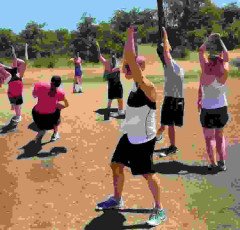





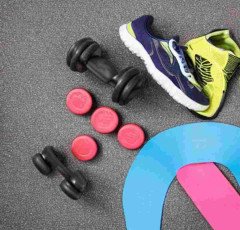








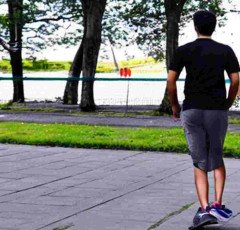


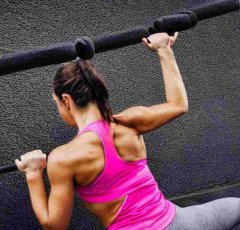
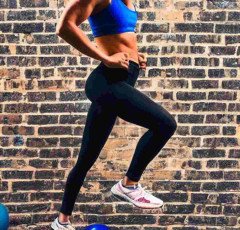
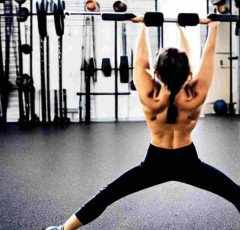






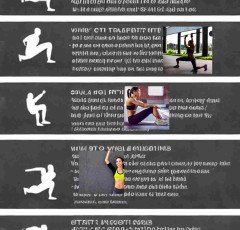




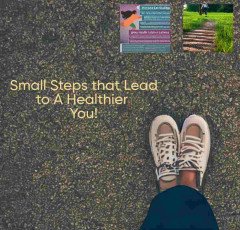
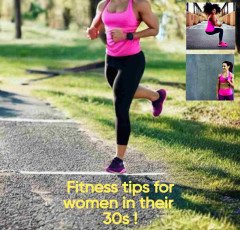





































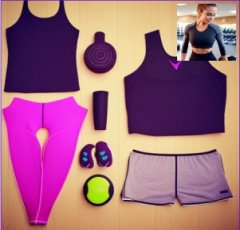














 One World Collection
One World Collection  NordVPN
NordVPN  Online Technology Classes
Online Technology Classes  All Wireless Products
All Wireless Products  Graphics & Design
Graphics & Design  Men Clothing
Men Clothing  BEST SELLER TOP10
BEST SELLER TOP10  Acer Laptop
Acer Laptop  Hello Theme
Hello Theme  Best Sellers On Amazon
Best Sellers On Amazon  ASUS Laptop
ASUS Laptop  Unreal Engine 5 For Beginners Learn The Basics Of Virtual Production
Unreal Engine 5 For Beginners Learn The Basics Of Virtual Production  Unlimited access to classes on illustration, photography, design, film, music
Unlimited access to classes on illustration, photography, design, film, music  Amazon Best Selling Products
Amazon Best Selling Products  Women Fashion
Women Fashion  1150+Trendy kids coloring pages Bundle
1150+Trendy kids coloring pages Bundle  RPM 3.0
RPM 3.0  TitTok Revolution
TitTok Revolution  Best Home Appliances
Best Home Appliances  The Secret Email System
The Secret Email System  Artificial Intelligence
Artificial Intelligence  Creative Brief For Video Shoot
Creative Brief For Video Shoot  SOFAS
SOFAS  NordLocker
NordLocker  Smart Doorbell
Smart Doorbell  Top Rated From Amazon
Top Rated From Amazon  Only For The United States
Only For The United States  SEO Checklist
SEO Checklist  The Click Engine
The Click Engine  Best Robotic Vacuum Cleaners
Best Robotic Vacuum Cleaners  Online Marketing
Online Marketing  ELECTRONIC ACCESSORIES
ELECTRONIC ACCESSORIES  NordPass
NordPass  Best Selling Books
Best Selling Books  Favorite Company (Cuelinks)
Favorite Company (Cuelinks)  Hot Bags For Pain Relief
Hot Bags For Pain Relief  ASPINAL LONDON
ASPINAL LONDON  Sennheiser
Sennheiser 
















